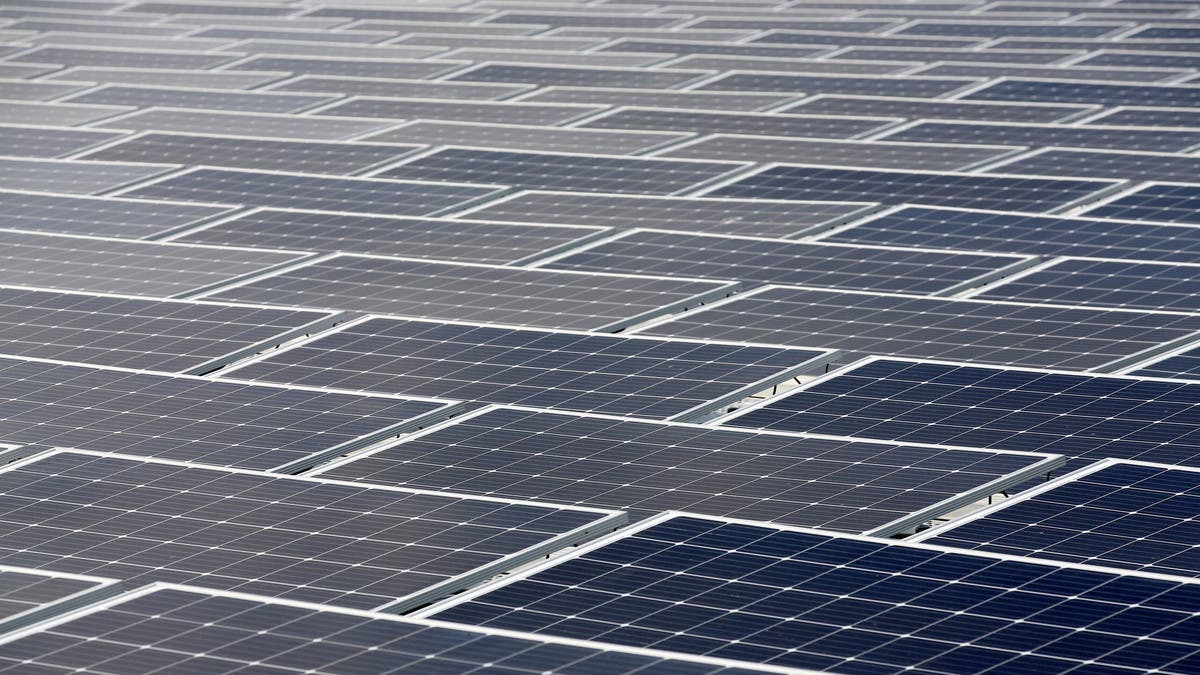California’s 26-year-old program to get more people to put solar panels on their homes has been wildly successful, but state regulators may lower the incentives for people to go solar in a bid to reduce electricity bills for the rest of residents in the most populous US state.
Current incentives allow residential solar customers to sell whatever energy they don’t use back to power companies at the retail rate for power, usually resulting in a big discount on their energy bills. But power companies say the savings are now so great that solar customers are no longer paying their fair share for the operation of the overall energy grid.
The future of the program, known as “net energy metering,” has prompted a fierce debate between the state's major utilities and the solar industry. Regulators at the California Public Utilities Commission, which oversees the state's major utilities and the rates they can set, are expected to issue proposed reforms on Monday. It comes as California strives to achieve its ambitious clean energy goals.
California’s net metering program launched in 1995 with the goal of boosting solar adoption in the famously sunny state. It now has more than 1.3 million residential solar installations, more than any other state, according to the solar industry. That number will only grow because since 2020 all newly constructed homes in California must have solar panels.
But as solar panels proliferated, criticism about the program grew. The major utility companies – Pacific Gas & Electric, San Diego Gas & Electric and Southern California Edison – say the current setup allows solar customers to sell their energy back into the grid for more than it's worth. They say more needs to be done to make sure solar customers – most of whom still rely on power from utilities at nighttime – are paying for all the parts of the energy grid they use.
Power rates include many costs unrelated to energy generation, like transmission, distribution and even wildfire prevention work. When solar households pay significantly lower electricity bills – or no bills at all – they’re contributing less to those things. That means more of the cost is shouldered by other customers. The utilities peg that cost at $3 billion, though the solar industry disputes that number.
The California Public Utilities Commission began a process for reforming the program last year with an eye toward ensuring energy grid maintenance costs are spread equitably and making it easier for residents of all backgrounds to purchase solar panels. Currently, higher-income households are more likely to have solar panels than lower-income households because solar costs a lot of money up front.
There are a wide array of opinions on potential reforms – 18 groups including the solar industry, the utilities, ratepayer advocates and environmental groups submitted proposals to state regulators. A five-member commission will vote on the final PUC reform proposal, likely in January.
The solar industry warns a dramatic decrease in financial incentives would entice fewer people to add solar panels to their homes, jeopardizing the market and hurting the state's ability to reach its clean energy goals. California is working to power all retail electricity with renewable or zero-carbon energy by 2045.
Solar panels on average cost between $20,000 and $25,000 to install on a California home, said Bernadette Del Chiaro, executive director at the California Solar and Storage Association, which represents 700 businesses involved in the solar market. It now takes about three to four years for homeowners to recoup installation costs by selling extra energy to the utilities, according to the companies.
The utilities have proposed lowering the amount of money solar customers get back, meaning it would take longer – 11 to 15 years – for homeowners to recover their costs. All residential solar customers would also have a “grid benefits charge” and a “customer charge” added to their bills that could be upwards of $70 per month.
The utilities' desired changes wouldn't apply to people who already have solar panels on their homes, only those who choose to install solar panels going forward. Low-income customers who install them within three years would pay lower fees.
The Utility Reform Network, a consumer advocacy group that’s often fighting with the utilities over rates, also wants to lower what households with solar panels are paid back for excess energy. The group has suggested locking in a 10-year price so homeowners know what they’ll be paid for excess energy before they install solar. They also want to increase the financial incentives for low-income households to participate.
“We are focused on affordability for everyone,” said Matt Freedman, staff attorney for the group.
The solar industry and its allies, including some environmental justice and clean energy organizations, say regulators should be looking for ways to boost incentives for California residents to buy solar panels, not decrease them.
Del Chiaro said the state should also be making it easier for people to buy solar storage systems alongside the panels.
Such systems, which cost about $15,000 to install, allow people with solar panels to store their own energy for use when it gets dark, making them less reliant on the energy grid.
As more people build storage systems, the utilities will need to spend less on new power plants or transmission lines, she said. But it also means they'll have fewer customers relying on them for energy.
“Utilities are really threatened now by batteries,” Del Chiaro said. “They’re really putting up a big fight to try to slow this market down.”
Read more:
North Korea's Kim at critical crossroads decade into rule
Australia to buy South Korea’s weapons in boost to defense ties

 World3 years ago
World3 years ago
 World3 years ago
World3 years ago
 Business1 year ago
Business1 year ago
 Entertainment7 years ago
Entertainment7 years ago
 World7 years ago
World7 years ago
 Entertainment7 years ago
Entertainment7 years ago






